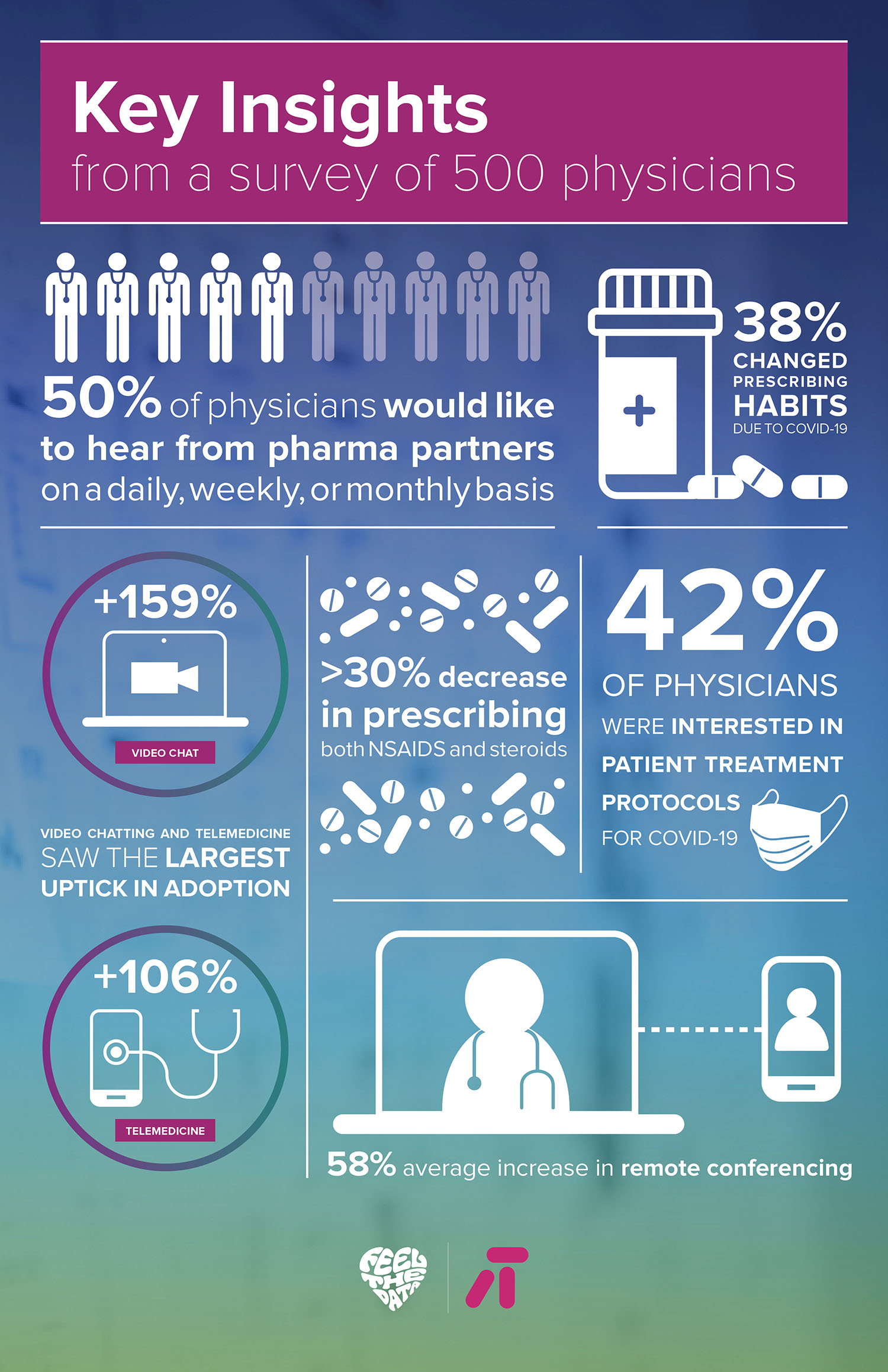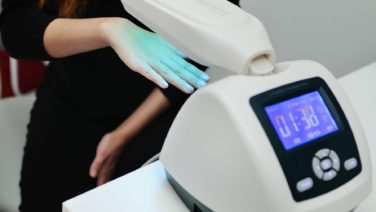Even though 83% of doctors say they haven’t received any new information from the pharma industry since late March, 50% would still like to hear from reps on a weekly basis—especially with practical information about the current COVID-19 health crisis and ways in which to respond to it. That’s according to a new survey of U.S physicians conducted by health and wellness marketing agency AbelsonTaylor.
The survey, “Understanding Physician Engagements in a COVID-19 Impacted World,” was designed, analyzed, and interpreted by AbelsonTaylor and fielded by global research company Savanta during the week of March 21-28, 2020. During that period, 500 U.S.-based physicians were interviewed, 100 in family/general practice and 50 each in cardiology, endocrinology, neurology, psychiatry, general surgery, general oncology, ophthalmology, and obstetrics/gynecology.
“We conducted this research to quantify how physicians are communicating during this pivotal time so we can anticipate what behaviors may become part of the ‘new normal’ after the pandemic, with patients as well as their industry sales reps,” Amanda Hartzmark, Senior Director of Marketing Intelligence at AbelsonTaylor, said in a statement. “Although the healthcare industry lags other industries in adopting new technologies and practices, the COVID-19 pandemic has forced rapid changes that may become standard when this subsides.”
 Information from Industry Reps
Information from Industry Reps
With social distancing guidelines being implemented across the country at the time of the survey, 63% of respondents reported a decline in office visits from pharma, biotech, and medical device sales reps. But, as mentioned above, physicians still want information from industry with 42% wanting treatment protocols for COVID-19 patients and 40% seeking digital literature, tools, and apps to aid in communicating with their patients.
In order to get this information, more than half of respondents said they would prefer to receive email notifications. Other channels that were also of interest to them included virtual detailing and just reading updates on websites.
“Until there is a vaccine, doctors will be extremely cautious about who they allow into their offices, especially those who treat higher-risk patients,” Hartzmark said. “They are also learning that they can still be kept abreast of new products, services, clinical trial updates, etc. via digital contact. Going forward, it’s likely that a more blended form of engagement will evolve pretty quickly, combining face-to-face visits with digital communications and leveraging the advantages of both.”
Prescribing Changes
Some physicians (38%) reported they changed their prescribing practices because of COVID-19. Of those who have made a change, 77% increased medication quantities, 73% wrote prescriptions without an office visit, and 49% reevaluated their patients’ prescriptions. Similarly, 38% said that were considering alternative treatment forms to avoid immuno-suppressing their patients. And when asked about changes in prescribing within specific treatment categories, 31% indicated a decrease in prescribing nonsteroidal anti-inflammatory drugs (NSAIDs) and 29% said the same about steroids. Overall, 41% expressed concern about their patients’ ability to remain adherent to their medication schedules.
Telemedicine and Office Visits
Physicians overwhelmingly (84%) reported seeing fewer patients, with a decline of average office visits going from 103 patients per week in the time prior to March 2020 to 40 patients per week in late March 2020.
Due to this, 75% of physicians said they started using alternative communication methods to reach their patients that they had not used in the preceding year. That includes an increase of 159% in video chatting, with approximately 35% of respondents using it in March vs. just 12% who used it in 2019, as well as telemedicine (106%), with more than 40% of physicians saying they used it in March vs. 18% in 2019. But despite the spikes in remote conferencing, nearly 90% of physicians said they relied on telephone calls to keep in touch with their patients remotely.
In a different survey conducted by agency Fingerpaint, their findings from 100 HCPs who responded to questions during the week of April 6, revealed that while 76% of HCPs agree telemedicine is convenient for their patient, 64% think it is not as effective as engaging with their patient in an office. However, 72% still said they are currently using telemedicine, and 58% said they intend to continue using it more than they had previously, even after the restrictions associated with COVID-19 are lifted.
Though not all specialties are taking to it easily, as ophthalmologists and allergists seemed to be having a tough time converting to telemedicine. Meanwhile, psychiatrists seemed most comfortable using it, with oncologists also being high adapters of the technology.
“While HCPs are turning to telemedicine out of necessity to offer safe and convenient access to care for their patients and still have some skepticism, they are acknowledging opportunities for continued expanded use post COVID-19,” Michelle Petroff, head of Fingerpaint’s Conshohocken office, said in a statement. “Brands have the opportunity to be true partners and develop educational information to help HCPs and patients become more comfortable with telehealth.”








